When Home Minister Amit Shah declared on August 6 that Article 370 has been scrapped and Kashmir fully integrated with the rest of India, whether or not he was aware, he said almost exactly what Jawaharlal Nehru told the Lok Sabha 56 years ago, on December 27, 1963. Here is an interesting recall and replay of what Nehru wanted to do but could not.
‘Art 370 eroded, Kashmir fully integrated,’ said Nehru
Pundit Nehru boastfully declared that Article 370 had been “eroded and Kashmir stands fully integrated” — when the ill-advised Article was very much in force. Nehru’s colleague and the then home minister Gulzarilal Nanda went a step further and told Parliament, “Article 370 is nothing more than a shell emptied of its contents. Nothing has been left in it; we can do it in one day, in 10 days, 10 months. That is entirely for us to consider.” That Article 370 — a temporary and transitional provision — was to be eroded away and it was only a matter of time, was the last stated position of the Congress under Nehru in the fag end of his time.
Why did liberal Nehru, who overruled and even humiliated Sardar Patel on Kashmir, Tibet and China, shift gear after a decade — from liberalism to nationalism? The answer lies in the China Effect. The humiliating defeat China inflicted on India altered Pundit Nehru’s political paradigm. The most telling proof of his shift was his invite to the RSS, his arch nationalist enemy, to participate in the Republic Day parade in 1963 — a complete U-turn by Nehru who banned the RSS in 1948 and declared he would not give “an inch of land” for the saffron flag to fly in India.
The 1962 war turned Nehru, who was a liberal first and nationalist next, into a nationalist first and liberal next. But Nehru could not bring to bear this change to reflect on his work as his health soon sharply declined, suffering his first heart attack in 1963, another in January 1964 and fatally in May 1964. Nehru could not and did not live to accomplish his desire to undo his own blunder. Result: What Nehru wanted to do, even thought he had done, and what his home minister promised to do “in days and months”, but the Congress could not and did not do for decades, had remained the unfinished agenda of Nehru and the nationalist Congress for six decades and more.
Nationalist Congress turns Leftist Congress
Why did the Congress not follow up on what Nehru and Nanda declared to the nation? And worse still, far from doing what Nehru himself wanted, the Congress after Nehru began celebrating Article 370 as the icon of Kashmiriyat, liberalism, secularism and even federalism. The reason for the U-turn away from nationalism was the Leftist takeover of the mind of the Congress from the late and early 1970s.
The Left (undivided CPI) has a history of being anti-India. It supported Partition on two grounds — one, Hindus would oppress the Muslims; and two, the Muslim League had turned progressive under an irreligious Jinnah! A host of CPI leaders, including Mohan Kumaramangalam who as law minister helped Indira Gandhi break the Constitution from within, and Nurul Hasan who devised the JNU as the weapon to break the nation from within, joined the Congress under Indira Gandhi when the nation itself was in the iron grip of the USSR. That is when the nationalist Congress turned into secular Congress. After Indira Gandhi won the 1971 war and turned Kashmir into a bilateral issue through the Shimla accord, she presumed Pakistan would not raise the K-word again.
Her over-confidence made her enter into a deal with Sheikh Abdullah in 1974, which effectively reversed the process of erosion of Article 370 set in motion by Pundit Nehru. Slowly Article 370, which from the word go had a sinister character, began acquiring a noble character and came to be regarded as the only bridge between India and Kashmir. Later, humiliated by the defeat in the 1971 war, Pakistan’s military dictator Gen Zia strategised and weaponised youth into jihadis to launch a low cost war on Kashmir. This evil strategy coupled with incompetent handling by the secular Indian establishment, which equated Article 370 to secularism, almost turned over the Valley to the militants in late 1980s, rendering five lakh Kashmiri Pundits refugees in their own land.
It took enormous effort by the then Narasimha Rao government and J&K governor Jagmohan to recover Kashmir, albeit partially. The secular Indian establishment hid its helplessness to take on militancy and repeatedly glorified Article 370 as the only hope to retain Kashmir with India. Mainstream family parties in Kashmir found a safety net in Article 370 to loot. Hurriyat laughed at the weak Indian state and repeatedly blackmailed India.
This emboldened Pakistan to turn its terror machine on to the mainland India. But the impotent Indian establishment chose to suffer silently. In 2008, when Pakistani terrorists tore Bombay apart for three days, maimed hundreds and displayed their barbarism on TV screens, India could have run over PoK, but instead the Congress, Left and liberals began candlelight processions for peace, asking people not to be provoked by the act of a few.
But the Bhasmasura of terror Pakistan had weaponised soon turned on its own creator. And an over-compassionate India certified Pakistan as not the creator of terror but its victim as much as India was! When the world saw on TV Osama bin Laden in a Pakistan safe house killed by a CIA-led US operation, the world laughed at our immaturity. And yet, India clung to its line of peace talks with terror merchant Pakistan. The Leftist Congress paradigm promoted demonising Army over human rights, fostered slogans of providing a healing touch and advocated peace talks with treacherous Hurriyat and terrorists. With state patronage, the extremists and terrorists controlled Kashmir’s political ecosystem. From being a nationalist party, Congress gradually became the B-team of liberals and Leftists, helping the BJP to move into the nationalist space vacated by the Congress.
Homework for abrogation
For the BJP, Article 370’s abrogation was no sudden idea or an underprepared plan. The BJP’s effort to penetrate J&K began in 2015 with the strategic sharing of power with PDP, which, out of sheer greed, joined hands with its arch enemy. The BJP’s being in power at the Centre and in Kashmir, could go for the jugular of the terrorists and broke their back, as the data shows. The number of stone throwing incidents in four years till 2016 was 3,415. It became just 51 in 2017, even less, 15 in 2018. Extremists eliminated rose by 44%, numbers killed by them fell by 62.5% and the injured came down by 94%. When the situation began improving, the BJP chose to discard Mehbooba and imposed President’s rule, which meant its own rule, but from Delhi. It raided militants and separatists and made them face the law, which was unheard of in Kashmir, shaking them to their roots.
The effect was most telling in the local body elections in 2018, boycotted by Mehbooba Mufti and Omar Abdullah, amid threats by Hurriyat and militants. In municipal polls, 58% voted. In panchayat polls 80% voted. In Kashmir municipal bodies, BJP won 100 seats and Congress 178. In Jammu, BJP won 43, Congress 18. The success of the local body elections served as the index of disenchantment with the two local family parties — the PDP and NC. Having had full five years to understand J&K, the BJP’s homework on J&K was complete. It began to relate to the elected members of the local bodies and sent money to them directly, with no political middlemen. It established direct rapport with those at the bottom of the pyramid in Kashmir, who had never been reached by the distant Delhi in the past. Simultaneously, it also rebuilt the global ecosystem in its favour.
With its increasing clout, India could make its views heard by the high and mighty. India’s clout dwarfed Pakistan’s. The surgical strike and the Balakot revenge for Pulwama attack were accepted by the world as part of India’s genuine rightful action to protect its people and territory. Under the Congress regime and before Modi came to power, this could never have been imagined.
The Modi government has changed the perception of the world about not just Kashmir or Pakistan terrorism, but also about the potentially evil character of Pakistan. This is what enabled India to handle the geopolitical hump and even sensitise the US in advance about its move to scrap 370. The homework to scrap Article 370 extended from local politics to geopolitics.
With such intense homework, backed by a massive mandate in the 2019 elections that threw the Opposition in total disarray, the time was ripe for Modi and Shah to nullify Article 370. In abrogating it, the Modi government has done not just what the BJP and its previous avatar Jana Sangh had for long been promising to do, if it got absolute majority. It has done more. It has done what the Congress and even Pundit Nehru who fathered the near-fatal Article wanted to but could not and did not.

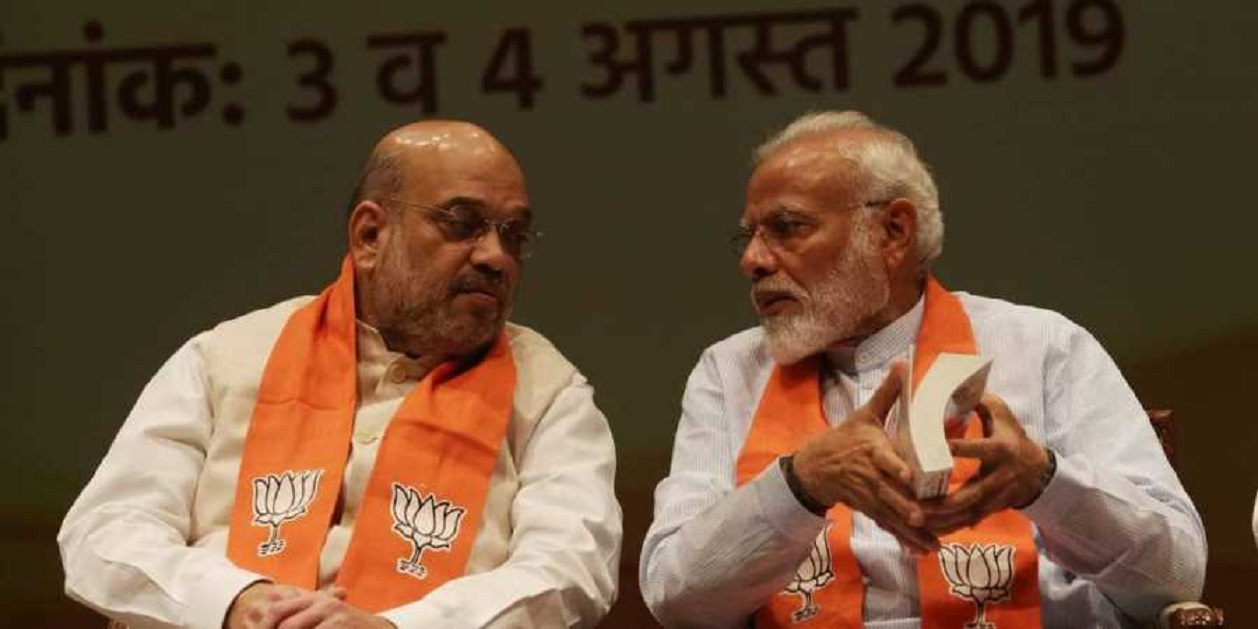
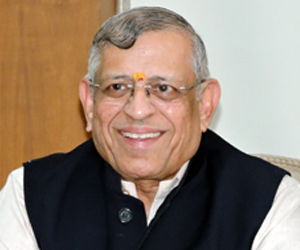

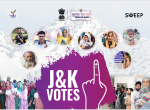



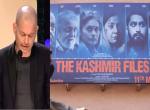
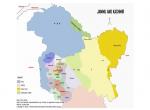

Post new comment